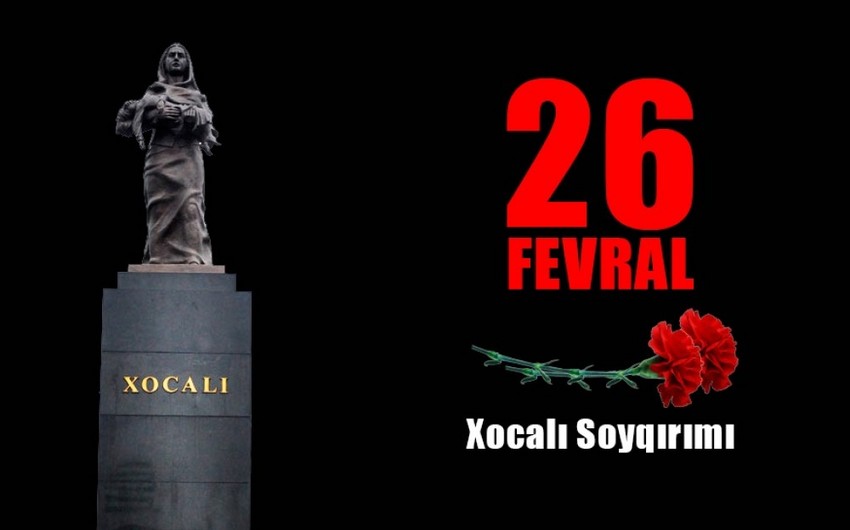Pravda.ru, a news website in Russia, has published an article on the 30th anniversary of the Khojaly tragedy, Report informs.
The article begins with the emphasis on the fact that history has witnessed many examples of human cruelty on a global scale, the Holocaust, the destruction of the village of Khatyn in Belarus, as well as the tragedy in Khojaly, Azerbaijan.
It is said that Khojaly, which was under the control of the Azerbaijani Armed Forces at the beginning of the conflict, was then considered a strategically important point: it was located ten kilometres from Khankandi, as well as essential routes passed through the city, where the airport was located.
"Since the autumn of 1991, Armenian units have completely blockaded Khojaly. Electricity was cut off, there was no telephone connection and no heating, and the water pipe was out of service. The population did not live, they tried to survive. By mid-February, only a few hundred residents had been evacuated by helicopter. The majority of the population, about 4,000, remained in the besieged city.
"The main events took place on the night of February 25-26. At 8:30 pm, it was reported that Armenian armoured vehicles were stationed around the city, and a few hours later, the enemy opened heavy artillery fire on homes and civilians. At that time, the town was engulfed in smoke. The panic began. To save themselves and their loved ones from the fire, people began to flee to the Aghdam district, located in the north-eastern direction. However, not everyone could reach Aghdam: many were killed by enemy fire, and some, especially women and children, who fled Khojaly without warm clothes, froze to death in the mountains.
"What happened in the city can be assessed by the reports of journalists. Thomas Goltz, a correspondent for The Washington Post, who visited the town and saw the bodies in the hospital, wrote that one of the victims was shot at close range, and the others had multiple stab wounds.
"Ahmad Mammadov, an 11-year-old refugee from Khojaly, told The New York Times that 'They came to our house and told us: either run away or burn alive.'
"Thomas de Waal (Black Garden) and Yuri Romanov also spoke about the horrors of this tragedy," the article reads.
The article says that the massacre that took place in Azerbaijan that night was recognized as genocide: "In 2012, the Pakistani parliament also adopted a relevant resolution. In the Czech Republic, these events are recognized as crimes against humanity. However, no one in Armenia has been punished for the killing of civilians, and no investigation has been pursued so far," the statement said.


 https://images.report.az/photo/cf82a533-e43a-3d14-ac71-aaef4e0161c0.jpg
https://images.report.az/photo/cf82a533-e43a-3d14-ac71-aaef4e0161c0.jpg

